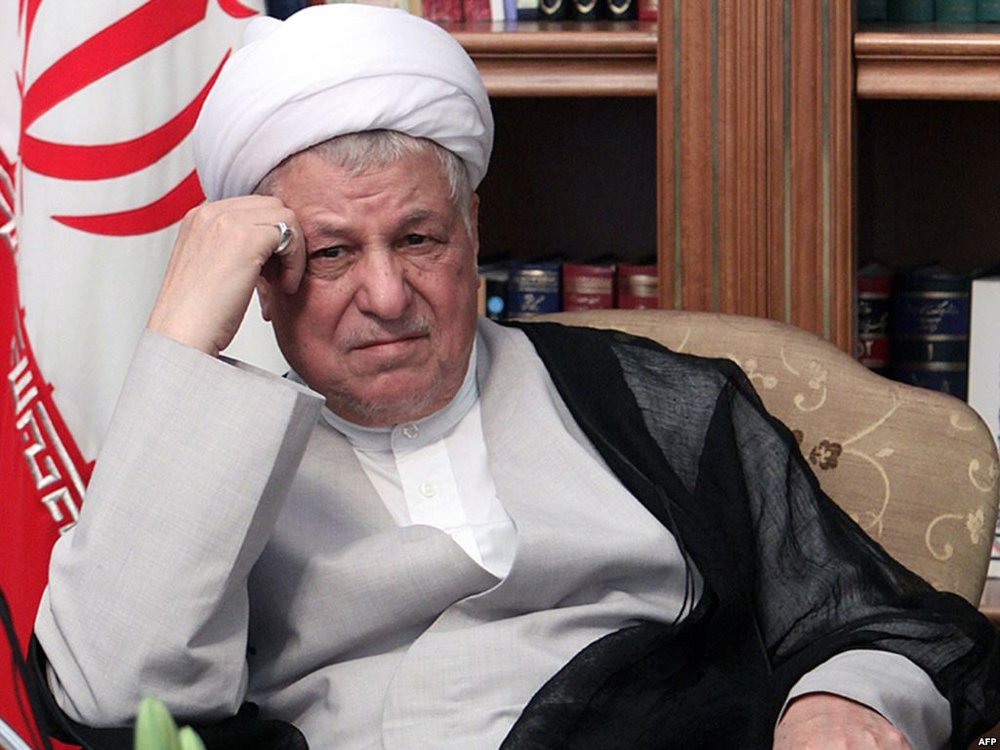Rafsanjani says Tehran and Riyadh can hash out disputes via negotiation

TEHRAN – While Iran and Saudi Arabia are locked in an escalating dust-up over a number of issues, seasoned politician Ali Akbar Rafsanjani has said the two can bury the hatchet through negotiation, citing examples.
“I see the issue (the Tehran-Riyadh gridlock) soluble,” Rafsanjani stressed, referring to a private conversation with Malek Abdullah, the then ruler of Saudi Arabia, in which Tehran and Riyadh agreed to help increase oil prices in 1997 as crude prices had decreased sharply.
The détente demands both sides listen to one another’s concerns, he alluded to, saying, “Of course they have also expectations of us.”
Once friends, Tehran and Riyadh disagree on a number of issues.
The Syrian crisis
Tehran and Riyadh have been sailing in turbulent waters from 2011, which has set the region’s two biggest powerhouses on a collision course over the future of the Syrian government.
While Iran has been backing a political settlement for the Syrian conflict, the Saudi kingdom has been insisting on an “Assad must go” policy, backing financially, ideologically, and logistically oppositions in Syria.
Mina hajj stampede
In 2015 during a hajj stampede in Mina, hundreds of pilgrims, including more than 460 Iranian nationals, were killed.
Tehran has kept blaming the stampede on Saudis, demanding an apology from Riyadh, criticizing Saudis over for lack of cooperation to immediately repatriate the bodies.
Iranian officials suggested Riyadh was incapable of managing the event, holding the country accountable for the disaster.
Execution of Shiite cleric
Bilateral ties between the two countries deteriorated after Saudi Arabia executed the Shiite cleric Sheik Nimr Baqr al-Nimr, a move which ignited outrage among Shiites across the Middle East and beyond.
In retaliation to the execution, Riyadh’s diplomatic posts in Tehran and Mashhad were stormed by angry mobs. As a result, Riyadh severed diplomatic ties with Tehran even though top Iranian officials condemned attacks on the diplomatic missions.
Hajj impasse
All these divergences rendered rounds of negotiation over reaching a deal on making arrangements for Iranian pilgrims to perform hajj this year futile.
A recent communique issued by Hajj and Pilgrimage Organization of Iran (HPOI) announced Iran won’t dispatch pilgrims this year to Mecca because of inconsistency at decision-making level by Saudis.
Iranians said the decision was linked with, inter alia, Saudis’ lack of cooperation to allay Tehran’s concerns over “safety” of Iranian pilgrims in Saudi Arabia.
Iranian Culture and Islamic Guidance Ali Jannati also said “performing the hajj ritual this year is virtually impossible” because of Saudis’ continuous sabotaging of the process.
Earlier, he had said, “We are seriously seeking to dispatch pilgrims to Mecca.”
Other challenges
The two also disagree on what is happening in Iraq and Yemen.
In a recent interview with RT Arabic, Saudi Arabian Foreign Minister Adel Al-Jubeir had claimed Tehran is meddling in Iraq's domestic affairs.
Tehran strongly rejected the claim, calling Saudi Arabia “the biggest agent and backer of instability and terrorism in Iraq, the region and the world over the past 15 years.”
Saudi Arabia has been also accusing Iran of backing Yemeni Houthis group, a claim categorically rejected by Tehran.
AK/PA
